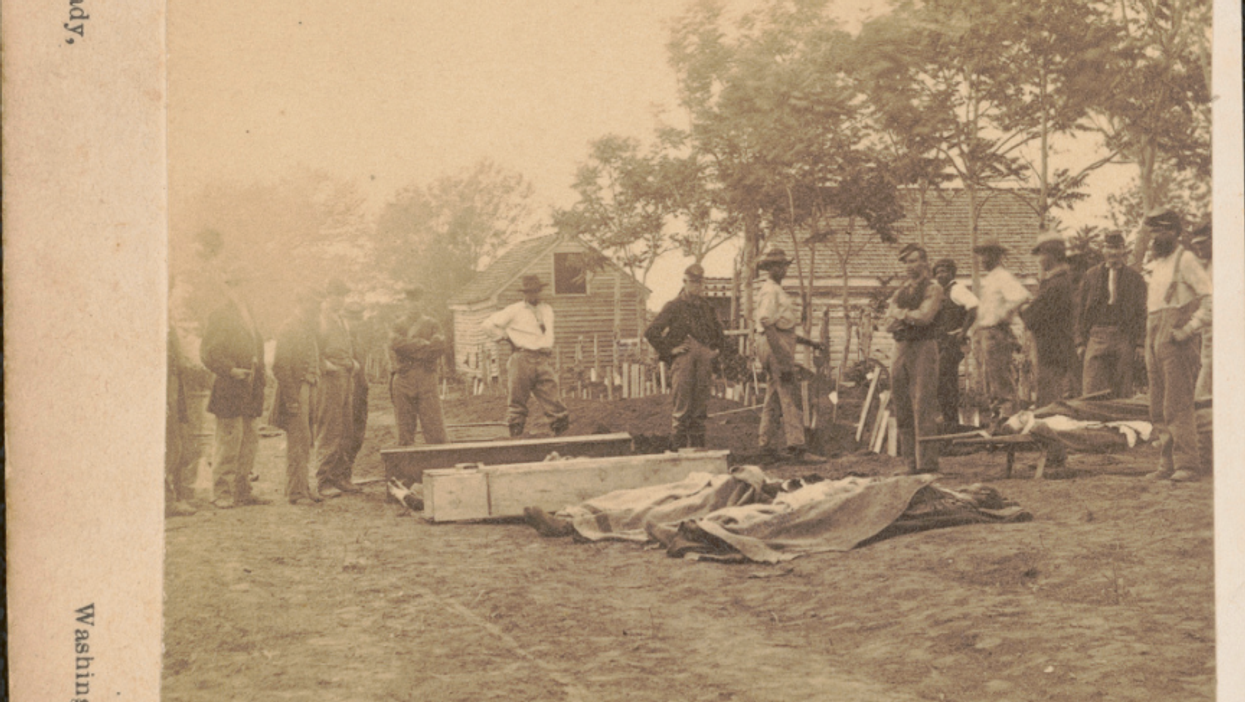Schermerhorn is a history professor at Arizona State University.
The outlook was not promising in 1864 for President Abraham Lincoln's reelection.
Hundreds of thousands of Americans had been killed, wounded or displaced in a civil war with no end in sight. Lincoln was unpopular. Radical Republicans in his own party doubted his commitment to Black civil rights and condemned his friendliness to ex-rebels.
Momentum was building to replace him on the ballot with Treasury Secretary Salmon P. Chase. A pamphlet went viral arguing that "Lincoln cannot be re-elected to the presidency." It warned: "The people have lost all confidence in his ability to suppress the rebellion and restore the Union." An embarrassed Chase offered Lincoln his resignation, which the president declined.
The fact remained that no president had won a second term since Andrew Jackson — 32 years and nine presidents earlier. And there was essentially no precedent of any country holding elections in the middle of a civil war.
Some urged that the Republican convention be postponed from June until September to give the Union one more shot at military victory. Other Republicans went further, arguing that the country should " postpone ... a Presidential election for four years more ... [until] the rebellion will not only be subdued, but the country will be tranquillized and restored to its normal condition."
Holding the election during Civil War would render "the vote ... fraudulent," the New York Sunday Mercury argued in a widely reprinted article. The nation would "flame up in revolution, and the streets of our cities would run with blood."
But Lincoln's party renominated him. He was a canny political strategist who calculated that picking Andrew Johnson, a Democratic Unionist and the military governor of Tennessee, as his vice presidential running mate would attract disaffected Democrats and speed national reunification.
Johnson proved to be a disastrous choice for Black civil rights, but in 1864 his candidacy shrewdly balanced the ticket.
Yet a military victory that could also help Lincoln's standing and prospects was elusive. General Ulysses S. Grant led the Overland Campaign against the Confederates, led by General Robert E. Lee, across much of eastern Virginia that spring. After 55,000 Union casualties — about 45 percent of Grant's army — Grant laid siege to Petersburg.
By the time Democrats met in August, and nominated General George McClellan, there was still no end in sight to the war. Lincoln had removed McClellan from command of the Army of the Potomac in 1862, but the general was still a commissioned officer. Yet McClellan's party was in disarray. He opposed a peace settlement with the Confederacy while the Democratic Party platform committed him to it.
Without scientific polling, Lincoln and his advisers predicted defeat.
At the end of August, Lincoln wrote to his Cabinet, "it seems exceedingly probable that this Administration will not be re-elected. Then it will be my duty to so cooperate with the president-elect, as to save the Union between the election and the inauguration; as he will have secured his election on such ground that he can not possibly save it afterwards."
Lincoln understood that the war for the Union was about the integrity of a constitutional republic, not the president or the party. It was about "a new birth of freedom" and not about him. And that meant his victory in the election was less important to him than the fate of the entire country.
Yet Lincoln also made contingency plans in the event he lost, asking Frederick Douglass to help free enslaved people in rebel-held areas.
It was a bitter campaign. Lincoln's opponents tarred him with racist and bestial characterizations. Republicans fought back, charging Democrats with being treasonous.
But no slogan discrediting the opposition was as effective in building support for Lincoln as the September Union military victories at Mobile Bay and Atlanta.
Grant made sure soldiers voting absentee sent their mail-in ballots. He furloughed others to go home to vote in person.
Even on the eve of the election, there were still calls to delay or cancel the vote.
Lincoln — who, of course, would go on to win — assured those critics: "We cannot have free government without elections; and if the rebellion could force us to forego, or postpone a national election it might fairly claim to have already conquered and ruined us."
This article is republished from The Conversation under a Creative Commons license. Click here to read the original article.
![]()



















